Fleurs du Mal Magazine


Or see the index
B e r t
B e v e r s
Asverstrooiing
Hoe van mij als grote broer
verwacht werd dat ik van ons pa
de as verstrooien zou. Ik weet
ons daar nog samen. Alleen.
Hij was nog meer dan ik van hem
verwachtte en liet zich door een
ferme ruk van oostenwind verspreiden.
Over mijn broek.
Over mijn schoenen.
Over mijn zin.
En van ons weg.
Bert Bevers
(uit Onaangepaste tijden, Uitgeverij Zinderend, Bergen op Zoom, 2006)
fleursdumal.nl magazine
More in: Archive A-B, Bevers, Bert

Don[ald Robert Perry] Marquis
(1878-1937)
“They Had No Poet . . .”
“Vain was the chief’s, the sage’s pride!
They had no poet and they died.” — POPE.
BY TIGRIS, or the streams of Ind,
Ere Colchis rose, or Babylon,
Forgotten empires dreamed and sinned,
Setting tall towns against the dawn,
Which, when the proud Sun smote upon,
Flashed fire for fire and pride for pride;
Their names were . . . Ask oblivion! . .
“They had no poet, and they died.”
Queens, dusk of hair and tawny-skinned,
That loll where fellow leopards fawn . . .
Their hearts are dust before the wind,
Their loves, that shook the world, are wan!
Passion is mighty . . . but, anon,
Strong Death has Romance for his bride;
Their legends . . . Ask oblivion! . . .
“They had no poet, and they died.”
Heroes, the braggart trumps that dinned
Their futile triumphs, monarch, pawn,
Wild tribesmen, kingdoms disciplined,
Passed like a whirlwind and were gone;
They built with bronze and gold and brawn,
The inner Vision still denied;
Their conquests . . . Ask oblivion! . . .
“They had no poet, and they died.”
Dumb oracles, and priests withdrawn,
Was it but flesh they deified?
Their gods were . . . Ask oblivion! . . .
“They had no poet, and they died.”
Don Marquis poetry
fleursdumal.nl magazine
More in: Archive M-N, CLASSIC POETRY

Ode
Aan jou opdragen, op onze drempel
van verstomming, een ode met woorden
die jou betovert, wil ik je gezel
naast mijn vermommingen zijn, openheid
aan jou tonen, toch verzand ik laf in
mijn opzet, ontluik jij, warm en bereid
maar zie ik haar voor mij in het begin
van een morgen, hoe ze mij bekoorde
zich naakt en koel van mij wendde, en ging
met de zon die binnen schoof op bussels
stof, de deur geruisloos open gleed, de
drempel sleets vertreden met mijn odes
Niels Landstra
fleursdumal.nl magazine
More in: Archive K-L, Landstra, Niels
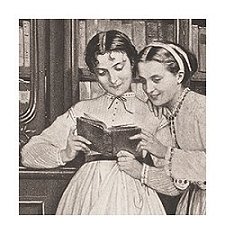
One Year ago
One Year ago — jots what?
God — spell the word! I — can’t —
Was’t Grace? Not that —
Was’t Glory? That — will do —
Spell slower — Glory —
Such Anniversary shall be —
Sometimes — not often — in Eternity —
When farther Parted, than the Common Woe —
Look — feed upon each other’s faces — so —
In doubtful meal, if it be possible
Their Banquet’s true —
I tasted — careless — then —
I did not know the Wine
Came once a World — Did you?
Oh, had you told me so —
This Thirst would blister — easier — now —
You said it hurt you — most —
Mine — was an Acorn’s Breast —
And could not know how fondness grew
In Shaggier Vest —
Perhaps — I couldn’t —
But, had you looked in —
A Giant — eye to eye with you, had been —
No Acorn — then —
So — Twelve months ago —
We breathed —
Then dropped the Air —
Which bore it best?
Was this — the patientest —
Because it was a Child, you know —
And could not value — Air?
If to be “Elder” — mean most pain —
I’m old enough, today, I’m certain — then —
As old as thee — how soon?
One — Birthday more — or Ten?
Let me — choose!
Ah, Sir, None!
Emily Dickinson
January 1, 2015
HAPPY NEW YEAR!
fleursdumal.nl magazine
More in: Archive C-D, Dickinson, Emily
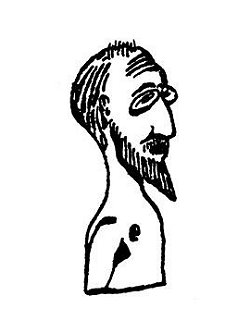
Erik Satie
(1866 – 1925)
Le Réveil de la Mariée
Arrivée du cortège.
Appels.
Levez-vous !
Guitares faites avec de vieux chapeaux.
Un chien danse avec sa fiancée.
16 mai 1914
Erik Satie Le Réveil de la Mariée
fleursdumal.nl magazine
More in: Archive S-T, Erik Satie, Satie, Erik

Ben Jonson
(1573-1637)
Come, My Celia
Come, my Celia, let us prove
While we may, the sports of love;
Time will not be ours forever;
He at length our good will sever.
Spend not then his gifts in vain.
Suns that set may rise again;
But if once we lose this light,
‘Tis with us perpetual night.
Why should we defer our joys?
Fame and rumor are but toys.
Cannot we delude the eyes
Of a few poor household spies,
Or his easier ears beguile,
So removed by our wile?
‘Tis no sin love’s fruit to steal;
But the sweet theft to reveal.
To be taken, to be seen,
These have crimes accounted been.
Ben Jonson poetry
fleursdumal.nl magazine
More in: Archive I-J, CLASSIC POETRY
B e r t
B e v e r s
Caleidoscoop
Bij de grafiek van Gerrit Westerveld
Rustig drukker duwt hij zijn vormen
papier op geestdriftig in wachtende kleuren.
Alle lagen zijn hem hiervan even lief.
Hij plet ze zacht totdat het vierkant staat.
Dit werk kent slechts zijn eigen normen,
tolt zich de blik in als draaiende deuren
gelijk open in een waaierend perspectief
en gesloten als een kermis bij dageraad.
Bert Bevers
(uit Onaangepaste tijden, Uitgeverij Zinderend, Bergen op Zoom, 2006)
fleursdumal.nl magazine
More in: Archive A-B, Bevers, Bert
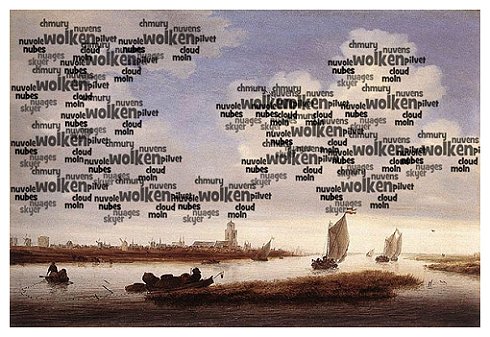
Mathias Jansson: Multi-language cloud-painting after Salomon van Ruisdael, “View of Deventer Seen from the North-West” (1657)
Mathias Jansson is a Swedish art critic and poet. He has contributed with visual poetry to magazines as Lex-ICON, Anatematiskpress, Quarter After #4 and Maintenant 8: A Journal of Contemporary Dada. He has also published a chapbook at this is visual poetry and contributed with erasure poetry to anthologies from Silver Birch Press.
Homepage: http://mathiasjansson72.blogspot.se/ and http://wordshavenoeyes.blogspot.se/
fleursdumal.nl magazine
More in: *Concrete + Visual Poetry F-J, Jansson, Mathias, Mathias Jansson, Mathias Jansson, Visual & Concrete Poetry
Emma Crebolder’s bundel Verzoenen (2014) heeft een ‘ lekker stoute’ ondertoon net als haar bundels Vallen (2010) en Vergeten (2010). Deze drie titels stralen samen een ouderdomsproblematiek uit. Zo ’n thema is echter een te voor de hand liggende gemene deler. Er zit veel meer in deze bundels, want er heerst namelijk een erotische geladenheid die je als lezer niet vanzelfsprekend verwacht. Crebolder vrijt talig bij voorkeur in de zee en met grote ogen gericht op andere levende wezens zoals een aardworm, eekhoorns, naaktslakken en chimpansees.
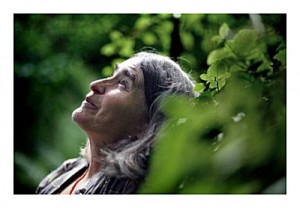 De verandering van naam zodra een vrouw in het huwelijk treedt is iets waar ook zij zich mee moest verzoenen als vrouw van haar tijd. Een naamsverandering is een talige en soms dramatische ingreep in het privé leven waar mannen zich weinig bij kunnen voorstellen. Crebolder verzoent zich hier heel verleidelijk mee. Ze schrijft op p.27 in Verzoenen:
De verandering van naam zodra een vrouw in het huwelijk treedt is iets waar ook zij zich mee moest verzoenen als vrouw van haar tijd. Een naamsverandering is een talige en soms dramatische ingreep in het privé leven waar mannen zich weinig bij kunnen voorstellen. Crebolder verzoent zich hier heel verleidelijk mee. Ze schrijft op p.27 in Verzoenen:
Door aanhuwen werd ik verdoopt
zoals mijn moeder en haar moeder
andermans naam gingen dragen.
Ik leef met de naam, lig erop, hang
hem over mijn schouders, verleid
hem zich thuis te voelen.
Ook in Vergeten (eerste bundel in deze serie, p.13) schreef ze al:
… Wat we verloren raakten is
geen naam, het zijn bijeengedreven veren.
Er hoort een woord omheen dat zit als
een condoom, strak denk ik. Ruim voorin.
Hoe erotisch, hoe seksueel kan een naam zijn – verzoening met haar eigen naam maar ook het terugvinden van vergeten namen. Verleiding is een merkteken van Crebolder. Waar wil je een betere “pick up line” vinden dan in de volgende regel uit Vergeten (p.45)?:
Wat moet ik je geven om je aan
mij uit te lenen?
In het slot van hetzelfde gedicht zijn de chimpansees een metafoor voor haar en haar gerenommeerde metgezel als ze zich herinnert:
Later zou het vlooien beginnen
en het tuiten van de lippen.
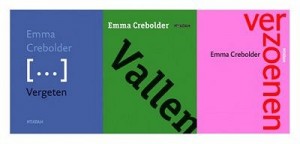 Eerder in Vergeten beschrijft Crebolder de naaktslakken als obscene kronkeltuigen die haar Oost-Indische kers vreten. Even aards gaat het eraan toe in de jongste bundel Verzoenen. Ze schrijft dat ze bij een aardworm wil liggen om goed voor eeuwig te kunnen slapen. In de wereld van de oudjes zag ze dat een kus als een hommel tegen een raam aan vliegt. Ze roept iedereen op hun kikkervisjes te delen. Ze hoort een meerkoet blurb (een van vele neologismen in haar woordenschat), terwijl de wind in de populieren jachtig tekeer gaat. Parende eekhoorns in Vallen worden in haar ogen spookacrobaten waar alleen zij van weet, maar die ze nooit zag. Crebolder beschrijft deze onderbuik activiteiten in de dierenwereld als getuigschriften.
Eerder in Vergeten beschrijft Crebolder de naaktslakken als obscene kronkeltuigen die haar Oost-Indische kers vreten. Even aards gaat het eraan toe in de jongste bundel Verzoenen. Ze schrijft dat ze bij een aardworm wil liggen om goed voor eeuwig te kunnen slapen. In de wereld van de oudjes zag ze dat een kus als een hommel tegen een raam aan vliegt. Ze roept iedereen op hun kikkervisjes te delen. Ze hoort een meerkoet blurb (een van vele neologismen in haar woordenschat), terwijl de wind in de populieren jachtig tekeer gaat. Parende eekhoorns in Vallen worden in haar ogen spookacrobaten waar alleen zij van weet, maar die ze nooit zag. Crebolder beschrijft deze onderbuik activiteiten in de dierenwereld als getuigschriften.
Dezelfde verholen onderbuik gevoelens draagt ze over op de vormen van wolken, een losgeslagen tak en zelfs op de wind in Verzoenen, p.11:
Zoals bij het verholen vrijen
de contouren wijken, dijen
de lijnen uit…
Een van de laatste gedichten in Vergeten op p. 53 is ultiem erotisch. Le petit mort dringt tijdens de climax door tot in de oogballen van het vrijende paar. De ontnuchtering is zo na aan de roes.
… We schuiven als paar in
elkaar tot de oogbol verschiet. Terwijl
het nog zacht nasneeuwt onder ons vel
ligt het juk al klaar. Misleid zijn we wel.
In alle drie de bundels zijn de laatste gedichten op pagina vijf en vijftig. Het slotgedicht in Vallen gaat ook over verleiding en vooral over de onverwachte vormen van verleiding. Dit resoneert door de bundel.
Het wordt niet neervallen
maar paarsgewijs wentelen.
Uiteindelijke is het vooral de stem van de zee die alle taalvermogens waarover Crebolder beschikt, uitdaagt. De zee is er bij eb en de zee is er bij vloed. Zwem- en waterbeelden stromen door deze bundels. In Vergeten (p.41) herinnert ze zich hoe het is om als kind in de zee te zwemmen:
De zee weet niet wat ze met ons deed.
Ze spreidt een waaier van schuim
over ons. We bewegen als kikkers
in haar.
Het is alsof de zee haar alfa en omega is. Cyclussen als getijden, geboorte en dood, dat zijn de ijkpunten van de liefde uit de zee die overgaat op het land in Verzoenen (p. 19):
Zeezout heb ik ingenomen
en watervruchten afgepeld.
In zeewier ben ik verzonken
toen langszij kleine vissen
onverstoorbaar verder zwommen.
Vanuit mijn vooronder kan ik nu
eindelijk het verre bovenlicht begroeten.
En ergens verholen zoekt nog één tentakel na haar verholen schacht. De dood kondigt zich aan op p.49. Misschien als een herinnering aan de oorsprong?
Definitief de zee in lopen
en vervluchtigen in de geliefde.
Dit gedicht doet me denken aan Ingrid Jonker die doodongelukkig in de liefde de zee inliep bij Drieankerbaai. Zij was een talentvolle Afrikaanstalige dichter en stierf voortijdig op 35-jarige leeftijd. Bij Crebolder is het echter geen wanhoopsdaad. Nee. Bij haar wordt de liefde verzoend met het zout; is liefde, is erotiek een vorm van verzilting.
…Mijn uitvaart
stel ik me soms zo voor.
…Aan scherven verwond ik me.
Ik kom. Zijn zout zal me genezen.
Niet alle erotische verwijzingen in haar laatste drie bundels zijn hiermee besproken. De liefdevolle energie en vitaliteit siddert na om haar te voeren naar weer nieuwe getijden met “de oude zee verderop” die nog steeds “in vloeiende zinnen” spreekt. Crebolder opponeert met hartstocht het contrapunt van het leven: niet een “sadder but wiser girl”, maar vrolijk ‘wiser and wetter’.
Carina van der Walt
Carina Van der Walt: Erotiek in de poëzie van Emma Crebolder. Fotoportret van Emma Crebolder door Carina van der Walt (2014)
fleursdumal.nl magazine
More in: Archive C-D, Archive W-X, Carina van der Walt, Crebolder, Emma, Walt, Carina van der
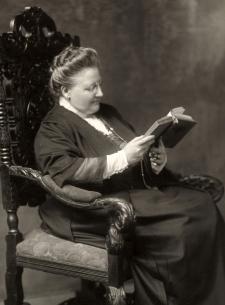
Amy Lowell
(1874-1925)
Patterns
I walk down the garden-paths,
And all the daffodils
Are blowing, and the bright blue squills.
I walk down the patterned garden-paths
In my stiff, brocaded gown.
With my powdered hair and jeweled fan,
I too am a rare
Pattern. As I wander down
The garden-paths.
My dress is richly figured,
And the train
Makes a pink and silver stain
On the gravel, and the thrift
Of the borders.
Just a plate of current fashion,
Tripping by in high-heeled, ribboned shoes.
Not a softness anywhere about me,
Only whalebone and brocade.
And I sink on a seat in the shade
Of a lime tree. For my passion
Wars against the stiff brocade.
The daffodils and squills
Flutter in the breeze
As they please.
And I weep;
For the lime-tree is in blossom
And one small flower has dropped upon my bosom.
And the splashing of waterdrops
In the marble fountain
Comes down the garden-paths.
The dripping never stops.
Underneath my stiffened gown
Is the softness of a woman bathing in a marble basin,
A basin in the midst of hedges grown
So thick, she cannot see her lover hiding,
But she guesses he is near,
And the sliding of the water
Seems the stroking of a dear
Hand upon her.
What is Summer in a fine brocaded gown!
I should like to see it lying in a heap upon the ground.
All the pink and silver crumpled up on the ground.
I would be the pink and silver as I ran along the paths,
And he would stumble after,
Bewildered by my laughter.
I should see the sun flashing from his sword-hilt and the buckles on his shoes.
I would choose
To lead him in a maze along the patterned paths,
A bright and laughing maze for my heavy-booted lover.
Till he caught me in the shade,
And the buttons of his waistcoat bruised my body as he clasped me,
Aching, melting, unafraid.
With the shadows of the leaves and the sundrops,
And the plopping of the waterdrops,
All about us in the open afternoon–
I am very like to swoon
With the weight of this brocade,
For the sun sifts through the shade.
Underneath the fallen blossom
In my bosom,
Is a letter I have hid.
It was brought to me this morning by a rider from the Duke.
“Madam, we regret to inform you that Lord Hartwell
Died in action Thursday se’nnight.”
As I read it in the white, morning sunlight,
The letters squirmed like snakes.
“Any answer, Madam,” said my footman.
“No,” I told him.
“See that the messenger takes some refreshment.
No, no answer.”
And I walked into the garden,
Up and down the patterned paths,
In my stiff, correct brocade.
The blue and yellow flowers stood up proudly in the sun,
Each one.
I stood upright too,
Held rigid to the pattern
By the stiffness of my gown.
Up and down I walked,
Up and down.
In a month he would have been my husband.
In a month, here, underneath this lime,
We would have broke the pattern;
He for me, and I for him,
He as Colonel, I as Lady,
On this shady seat.
He had a whim
That sunlight carried blessing.
And I answered, “It shall be as you have said.”
Now he is dead.
In Summer and in Winter I shall walk
Up and down
The patterned garden-paths
In my stiff, brocaded gown.
The squills and daffodils
Will give place to pillared roses, and to asters, and to snow.
I shall go
Up and down
In my gown.
Gorgeously arrayed,
Boned and stayed.
And the softness of my body will be guarded from embrace
By each button, hook, and lace.
For the man who should loose me is dead,
Fighting with the Duke in Flanders,
In a pattern called a war.
Christ! What are patterns for?
Amy Lowell poetry
fleursdumal.nl magazine
More in: Archive K-L, CLASSIC POETRY, Lowell, Amy

The Sorrows of Young Werther (73 = The end) by J.W. von Goethe The house, the neighbourhood, and the whole town were immediately in commotion. Albert arrived. They had laid Werther on the bed: his head was bound up, and the paleness of death was upon his face. His limbs were motionless; but he still breathed, at one time strongly, then weaker--his death was momently expected. He had drunk only one glass of the wine. "Emilia Galotti" lay open upon his bureau. I shall say nothing of Albert's distress, or of Charlotte's grief.The old steward hastened to the house immediately upon hearing the news: he embraced his dying friend amid a flood of tears. His eldest boys soon followed him on foot. In speechless sorrow they threw themselves on their knees by the bedside, and kissed his hands and face. The eldest, who was his favourite, hung over him till he expired; and even then he was removed by force. At twelve o'clock Werther breathed his last. The presence of the steward, and the precautions he had adopted, prevented a disturbance; and that night, at the hour of eleven, he caused the body to be interred in the place which Werther had selected for himself. The steward and his sons followed the corpse to the grave. Albert was unable to accompany them. Charlotte's life was despaired of. The body was carried by labourers. No priest attended. THE END The Sorrows of Young Werther (Die Leiden des jungen Werther) by J.W. von Goethe. Translated by R.D. Boylan. fleursdumal.nl magazine
More in: -Die Leiden des jungen Werther, Goethe, Johann Wolfgang von
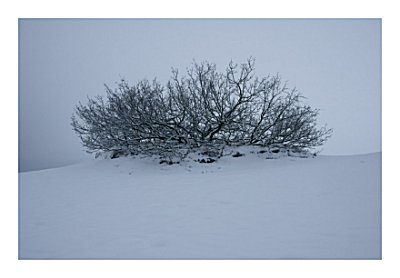
Christina Rossetti
(1830-1894)
A Hymn For Christmas Day
The Shepherds watch their flocks by night,
Beneath the moon’s unclouded light,
All around is calm and still,
Save the murm’ring of the rill:
When lo! a form of light appears,
And on the awe-struck Shepherds’ ears
Are words, of peace and comfort flowing
From lips with love celestial glowing.
Spiritual forms are breaking
Through the gloom, their voices taking
Part in the adoring song
Of the bright angelic throng.
Wondering the Shepherds bend
Their steps to Bethlehem, and wend
To a poor and crowded inn: –
Tremblingly their way they win
To the stable, where they find
The Redeemer of mankind,
Just born into this world of danger,
Lying in an humble manger.
And they spread abroad each word
Which that joyful night they’d heard,
And they glorified the name
Of their gracious God, Who came
Himself to save from endless woe
The offspring of this world below.
Source: The Complete Poems of Christina Rossetti, Vol. 3, p. 122, R. W. Crump, ed. (Penguin, 2001). Photo Hans Hermans @2010
fleursdumal.nl magazine
More in: Archive Q-R, Rossetti, Christina
Thank you for reading Fleurs du Mal - magazine for art & literature